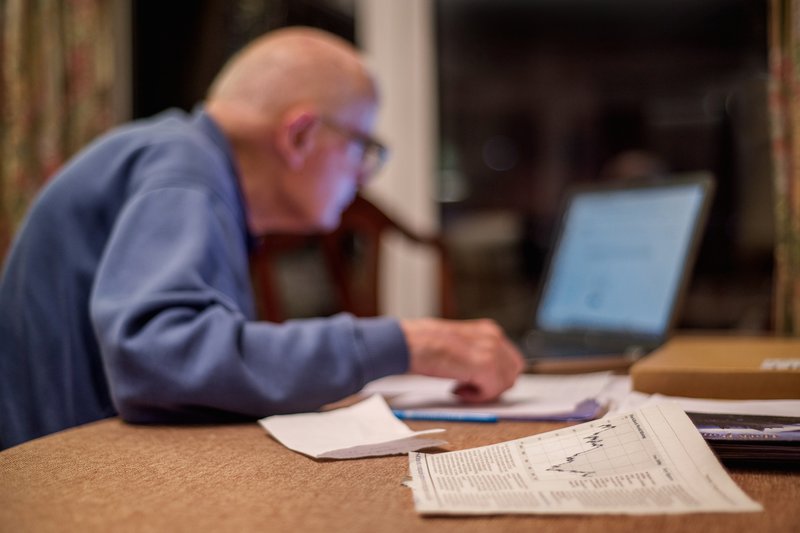
Rob Carrick
Feb. 26, 2020
This is a hell of a time to tell people they need to take more risk with their retirement investing.
Unnerved by the spreading coronavirus, stock markets across the world have fallen sharply this week. Investors are endlessly coached to stay calm at scary moments, but markets sometimes work on emotion as much as numbers. Panic will reign from time to time.
With this reality check out of the way, let’s delve into the new Retirement Readiness Barometer created by the human resources consulting firm Mercer. The conclusion of this analysis is that Canadians are too conservative in their investing and need to take more risk if they want to retire close to the age of 65. Without a more aggressive approach, some people won’t be financially ready to retire until as late as 70.

Low fees for advice and investing products are also important factors in determining when people have enough money to retire, and so is the percentage of their income that people save. But Mercer particularly emphasized the need for people to get more aggressive with their retirement investments or, in other words, add more exposure to the same global stock markets that have fallen this week.
“Exposure to diversified equities over long periods of time will make employees more retirement ready,” said Jillian Kennedy, partner and leader of defined contribution and financial wellness at Mercer Canada. “If we had somebody who was saving 3 per cent [of their income] and they moved up to 5 per cent, it didn’t actually make as much of a difference as changing the way they invested.”
Stocks look scary this week and worse may be coming. But even with periodic corrections, the S&P/TSX Composite Index still generated average annual total returns (share price changes plus dividends) of 7.7 per cent for the 10 years to Jan. 31, while the S&P 500 stock index averaged 16.5 per cent in Canadian dollars.
Bonds averaged a solid 4.4 per cent annually over the past decade, but that’s a result of a persistent falling interest rate trend that could be mostly played out (falling rates send bond prices higher). Treasury bills, which we’ll use as a proxy for cash, averaged 0.9 per cent.
Mercer’s retirement barometer is based on analysis of roughly 1,000 workplace retirement savings programs, notably group registered retirement savings plans and defined contribution pension plans. In both of these programs, employees choose from a selection of investment options that are funded with their own savings and matching employer contributions. Analyzing how workers handle their workplace plans offers some insights into the way in which the broader population handles retirement investing.
Millennials stood out for their conservative ways as investors in the Mercer study. Roughly 15 per cent to 20 per cent were found to have switched out of the well-diversified default investments in their workplace retirement savings plans and into bond or money market funds, Ms. Kennedy said.
“If you’re going to invest that way, be ready to retire when you’re 70,” she said. Mercer says that millennials who shift away from bonds and money market funds to a mix of stocks and bonds could be ready to retire at 67.
Mercer’s look at Gen X-ers found that their retirement challenge was more about contributing additional amounts to retirement saving than changing their investment mix. Ms. Kennedy said that people in all age groups may need to save more because group RRSPs or DC pensions alone may not be enough.
Baby boomers are considered to be the most fortunate generation in a financial sense, but Mercer found they were also prone to overly conservative investing. Some boomers may not be ready to retire until as late as 69 because of this.
Ms. Kennedy said the retirement barometer started out as a way to highlight the double-barrelled importance of taking on more risk and contributing more money. “But we found that the savings rates people have, if we were to play with them, did not make as much of a difference as the asset mix and the overall way people are investing. The story is really that we need to start taking more risk.”
This Globe and Mail article was legally licensed by AdvisorStream.
© Copyright 2024 The Globe and Mail Inc. All rights reserved.


